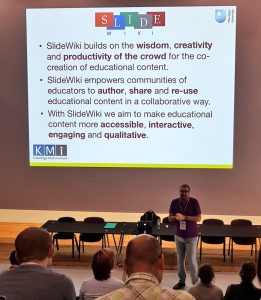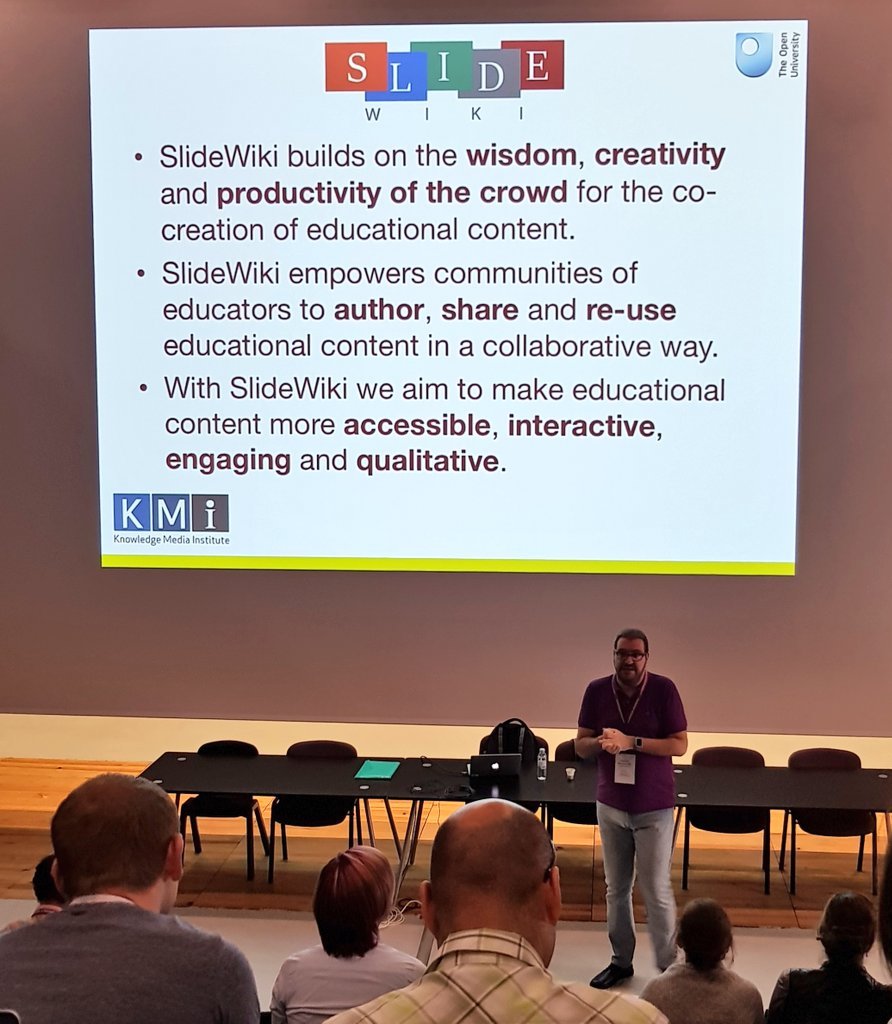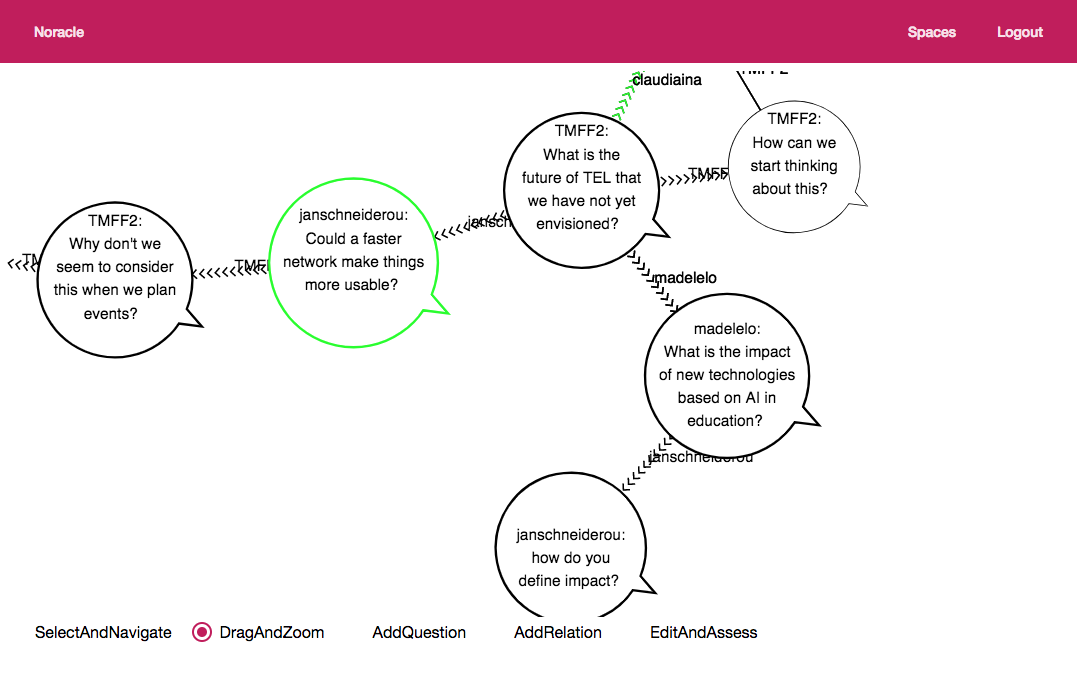News Story
KMi at the JTEL Summer School 2017
Monday 16 Oct 2017
The 13th Joint European Summer School on Technology Enhanced Learning took place last week in the beautiful city of Aveiro in Portugal. This is an annual event, gathering PhD students from universities across Europe and providing them with opportunities to develop research skills, increase their knowledge base, collaborate with others in their own and complementary research areas, engage in debate, have access to experts in the field, and discuss their own work. This year, KMi was represented in this event by Alexander Mikroyannidis and Tracie Farrell Frey, both of whom delivered hands-on workshop sessions.
Alexander’s workshop introduced participants to the SlideWiki platform and its functionalities for collaborative authoring of Open Educational Resources (OERs). Participants were also introduced to the latest technological developments behind SlideWiki, regarding its integration with different educational platforms. Additionally, participants have had the opportunity to try the SlideWiki platform and perform a range of OER-related tasks, including finding OERs, reusing existing OERs, as well as authoring new OERs in collaboration with other participants. Participants were able to offer their feedback via discussions and complete a questionnaire evaluating SlideWiki in terms of its usefulness and usability.
Tracie’s workshop was about hands-on collaborative and social learning in Technology-Enhanced Learning. Participants were given the opportunity to try out two pieces of innovative software, both of which leverage digitalisation to add value to already validated, social pedagogical concepts. "Noracle", for example, was originally a face-to-face method for representing different perspectives through question-based dialogue (in which only questions are used as speech acts). The digital tool, a distributed Noracle, makes it possible to explore and map community ignorance through question-based dialogue, asynchronously and without a formal infrastructure. The tool uses a peer-to-peer architecture to safe-guard the community’s outputs and reduce the costs involved with centralisation. The second tool, the SOIL project, transfers the concept of creating flashcards to a digital space, to support Social MicroLearning. Participants tested the early stage software and provided valuable feedback for future development.
Related Links:


Latest News
KMi at the Palace of Westminster: Exploring Blockchain for Society and Economy
OUAnalyse at the Digital Ethics Summit 2025: Advancing Responsible AI in Education

